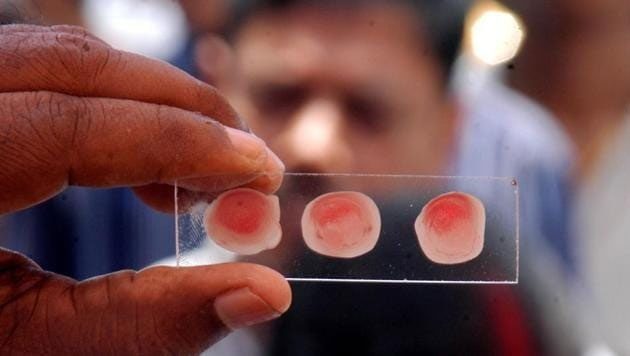Flowing through the veins of every human body are tiny variations that classify blood into different groups, including: A+, A-, B+, B-, O-, O+, AB+, AB-.
Blood type often goes unnoticed until you find yourself in a hospital waiting for a blood transfusion or donating blood.
However, numerous studies are underway showing that blood type can influence many health factors more than we previously thought. The subtle differences in blood may provide advantages in preventing cardiovascular issues or, conversely, make the body more susceptible to diseases, according to CNET.

Blood type may affect cardiovascular disease risk. (Image: Hindustan Times).
Cardiovascular Disease Risk by Blood Type
According to the American Heart Association (AHA), individuals with blood type A, blood type B, or blood type AB are at a higher risk of heart attack or heart failure compared to those with blood type O.
A large study revealed that individuals with blood types A or B have an 8% higher risk of heart attack and an 8% increased risk of heart failure compared to other blood types. While these risks are not exceedingly high, the differences in coagulation rates are more significant, according to the AHA.
In the same study, individuals with blood types A and B are 51% more likely to experience deep vein thrombosis and 47% more likely to suffer from pulmonary embolism. These are serious coagulation disorders that can also increase the risk of heart failure.
Dr. Guggenheim, a hematologist at Penn Medicine, suggests that this risk may be related to inflammatory conditions occurring in the bodies of those with blood types A, B, or AB.
The proteins present in blood types A and B may cause a condition that leads to “clogging” or “thickening” of veins and arteries, leading to an increased risk of clotting and heart diseases.
Dr. Guggenheim also posits that this could explain why individuals with blood type O have a reduced risk of severe Covid-19, although conclusions are not yet definitive. The reason may be that the coronavirus can cause heart issues, clotting problems, and other cardiovascular events.

Individuals with blood type O may have fewer cardiovascular issues. (Image: Pexels).
Other Health Impacts of Blood Type
While individuals with blood type O have a lower risk of heart disease and clotting, they may be more susceptible to bleeding or clotting disorders. A study on postpartum hemorrhage indicated that this risk increases in women with blood type O.
Another study published in the journal Critical Care showed that individuals with blood type O may also suffer more severely after injury due to blood loss.
Additionally, research has found that individuals with blood type AB may face a higher risk of cognitive decline compared to those with blood type O. Cognitive decline includes issues like difficulty remembering, concentrating, or making decisions.
Although current studies suggest that blood type may be related to heart disease risk, factors such as diet, exercise, or even environmental pollution also significantly impact cardiovascular health.
According to Dr. Guggenheim, regardless of blood type, maintaining a heart-healthy diet is essential.

Lean meats, healthy fats, fruits, vegetables, and whole grains are all heart-healthy foods. (Image: Pexels).
He emphasizes that future studies may provide clearer evidence of this correlation, assisting doctors in better treating patients based on their blood types.
When all factors are considered equally, patients with healthy cholesterol levels and blood type A may benefit from taking aspirin daily, while it may not be necessary for similar individuals with blood type O.
Dr. Guggenheim states: “A balanced, heart-healthy diet is something any doctor would recommend. This recommendation remains unchanged, regardless of your blood type.”


















































